What you need to know ahead of Scotland's budget
- Published
As Scotland's Finance Secretary Derek Mackay gets set to announce his first budget, I examine what might be in store.

Taxation - up, down or stay the same?
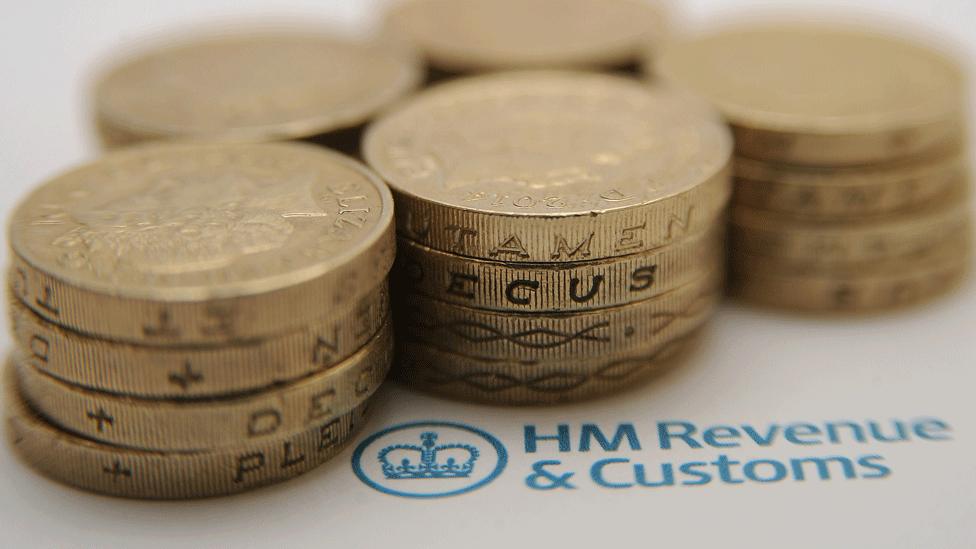
Holyrood is taking on a series of new tax powers
This is the big topic, in light of Holyrood's new fiscal powers. It is also the one where the government's plans may be clearest, thanks to the specific proposals in the SNP's manifesto, external.
Under the Scotland Act, from the start of next year Holyrood is taking on the power to set the rates and bands of income tax (on earned income, excluding savings and dividends).
Focusing on Scotland alone, rates will not change. You should not face a higher tax bill in Scotland. But, depending on your income, you may be left paying more tax than you would if you lived and worked in England.
That is because there will be a change in comparison to the rest of the UK. The SNP has pledged not to replicate tax cuts proposed at Westminster for the higher rate band, in the form of a change to the threshold of the top tax rate.
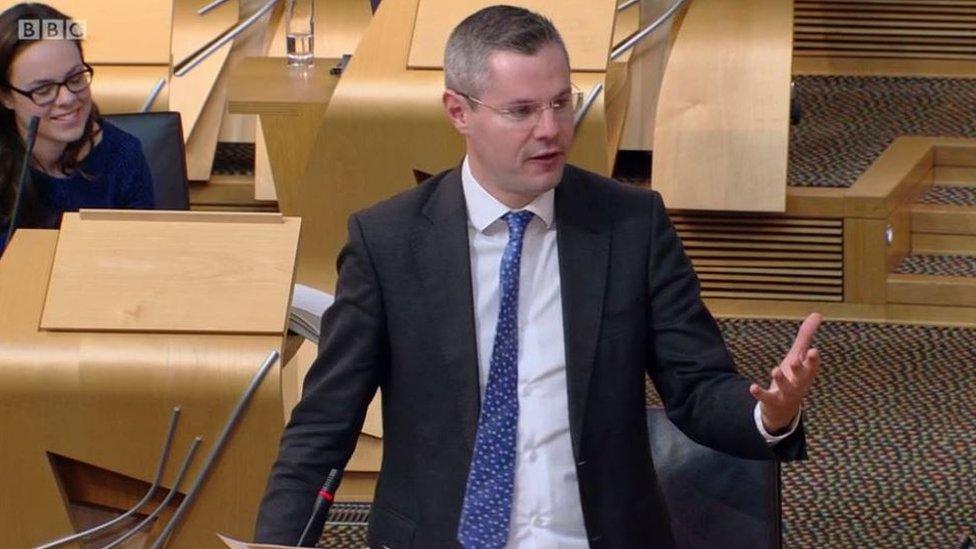
Derek Mackay will be setting out his first set of spending proposals at Holyrood on Thursday
This means the highest paid people north of the border will ultimately pay more tax than their southern neighbours.
The UK government plans to raise the threshold for the higher rate from £43,000 to £45,000 next year, 2017/18 - and eventually to £50,000. The Scottish government meanwhile intends to raise it only by the CPI rate of inflation in 2017, to £43,430, and by no more than the rate of inflation each year until 2021/22.
In terms of the basic rate of income tax, the SNP has pledged to freeze it for the duration of the parliament.
There will actually be a separate vote on the tax proposals next year, before the final budget package is agreed - raising the intriguing possibility that the (minority) government could partner up with one party over tax, before getting a different one to back the budget as a whole.

Councils - more hard times ahead?
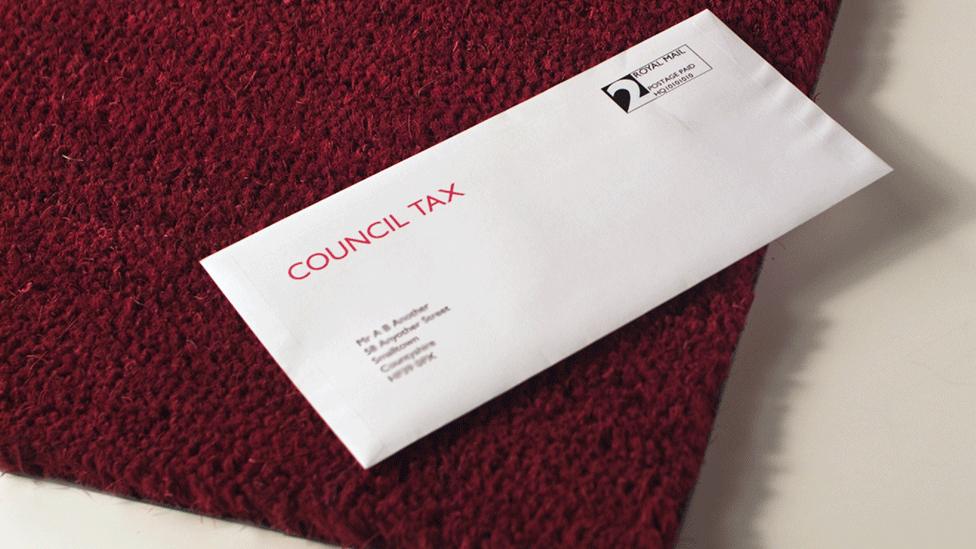
Council bosses are worried about how much money will be coming their way
After tax, perhaps the most controversial topic in the budget is the share of funds that go to local authorities.
This pot of money has been shrinking in recent years, amid warnings that "significant challenges" lie ahead due to shrinking income and rising demand for services. However, the government insists it has treated councils "fairly" in line with falling block grants coming north from Westminster.
Council bosses appear braced for more hard times, warning that cuts could be "disastrous" for local services. Expect lengthy negotiations between them and Mr Mackay's team following the statement - indeed, they have already started.
Politically, the local authority elections looming in May could have some bearing on the settlement and the following talks - with councillors, ministers and opposition leaders lining up for a scrap.
Aside from the main settlement, local authorities will be able to squeeze out some more funds with the unfreezing of council tax; they will be able to raise the levy by up to 3%, although the final choice comes down to each council.
People in higher council tax bands will face an increase regardless, with the proportion of bands E-H being altered. However, the plan is for this increase to raise £100m for education nationwide, rather than to swell council coffers. That has been controversial and we should watch for the final plan.

Schools, houses and hospitals - will budgets increase?
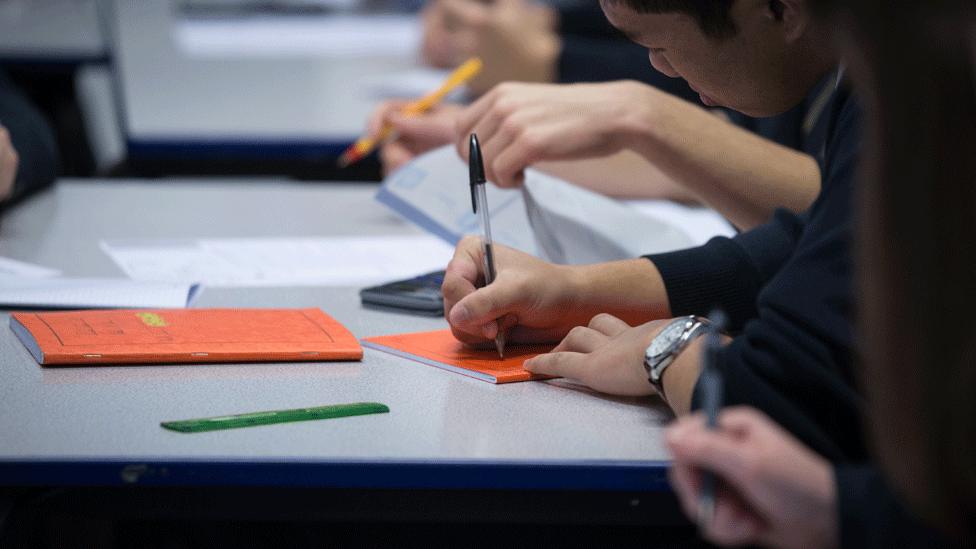
The Scottish government has made education a big priority
Looking more towards the spending than raising of funds, what has Mr Mackay got in mind for local services?
The NHS budget is set to increase, with the SNP repeatedly promising £500m more above the rate of inflation by the end of the parliament. They have also pledged extra funds for social care, cancer prevention and treatment and mental health services.
Nicola Sturgeon has asked to be judged on her record specifically on education, and has tasked John Swinney, a veteran of budgetary statements, with improving Scotland's schools. So there will be extra funding for schools - in particular via the Attainment Fund, which sends money direct to head teachers - as well as for early years and childcare.
This would also be a timely moment for the government to boost education from a political perspective, given recent challenging statistics.
The government has also targeted investing billions in house building, aiming for at least 50,000 new affordable homes over the course of the parliament. There may also be some cash for energy efficiency in existing homes.
The rural economy has also been highlighted as a priority, with promises of funding for expanded broadband coverage, rural communities and the environment.
And look out for some support for business and potentially capital investment to stimulate the economy in the turbulent post-Brexit referendum era.

Deal or No Deal - who will back the government?
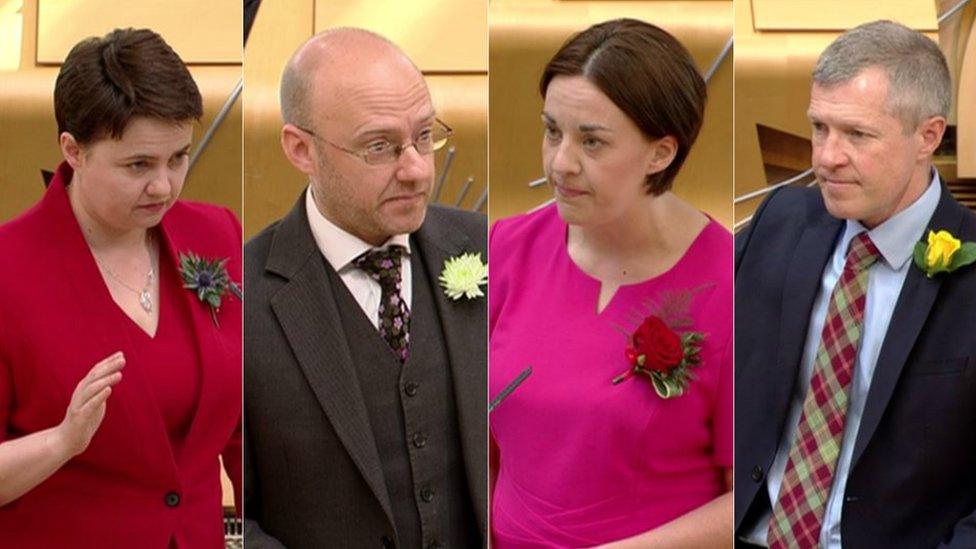
Which of the opposition leaders - if any - will back the SNP's budget?
With the SNP now ruling as a minority administration, opposition parties have been increasingly willing to gang up on the government this term. They've bloodied Nationalist noses on everything from repealing the Football Act to the NHS - and indeed tax.
But it's one thing to score points in symbolic chamber votes - it would be quite another to derail a budget. In any case, the SNP only need to win over one party to seal the deal.
You can more or less rule out the Tories as potential bedfellows, given their differences both in politics and policy. Yes, John Swinney struck deals with them in the previous minority government of 2007-11, but Ruth Davidson's Tories have set their stall out very specifically as a "strong opposition".
They have made overtures on the subject of Air Passenger Duty, but the idea of Scots paying more income tax than their neighbours south of the border is anathema to Conservatives.
Labour and the Lib Dems also stand quite some way from the SNP on the crucial matter of tax, albeit for a different reason: both sides strongly advocate raising income tax to protect services.
A deal with Labour seems particularly unlikely from a political standpoint, regrouping as they are after slumping to third in May's elections and looking ahead to a bitter battle against the SNP in many councils in 2017.
Could the Lib Dems be persuaded? Perhaps, in exchange for funding pledges on mental health, education or childcare, although again tax is an issue.
But the Greens might be a marginally easier sell, despite their similarly tough election stance on tax; they could perhaps be won over with some money towards action on poverty or support for energy efficiency. Perhaps.
There doesn't need to be a deal this week, of course; nothing is being voted on just yet. The horse-trading will continue well into the New Year.

What's the timetable?
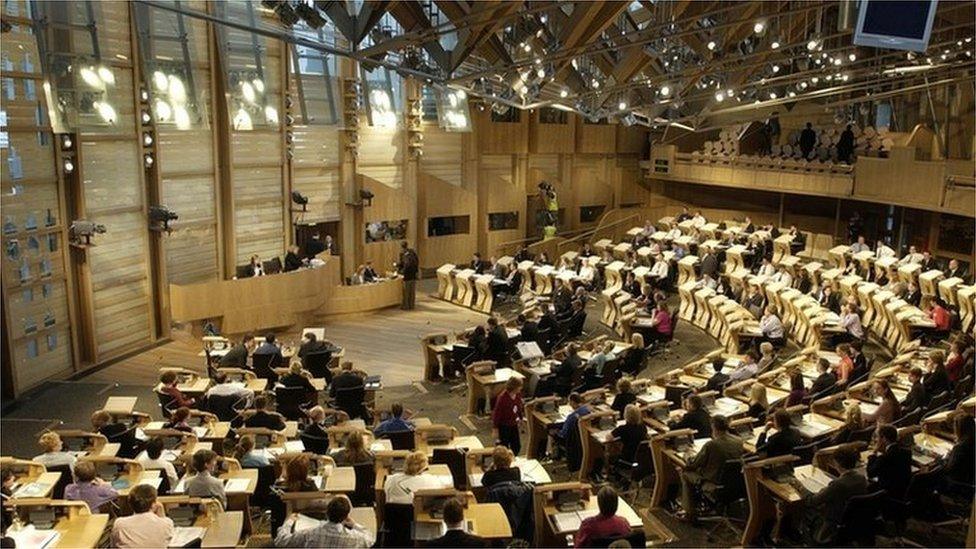
MSPs will vote on the budget plans in February 2017
The budget timetable has already been the subject of controversy, with Mr Mackay delaying publication until mid-December instead of the more traditional September date.
The finance secretary wanted to wait until after Philip Hammond's Autumn Statement so that he had a full picture of the fiscal playing field - but MSPs were concerned about how little time this would leave for scrutiny, with the opposition accusing Mr Mackay of "showing contempt for parliament".
Committees have already started some pre-budget scrutiny, but will buckle down in earnest following Mr Mackay's statement on Thursday, before the plans go before parliament for the first time towards the end of January.
More committee examination will follow, with votes there at stage two before the final stage three vote in the Holyrood chamber at the end of February.
Underpinning all of this will be continuing negotiations, both with opposition parties and local authorities.
And remember that there will be a separate vote on tax, likely to be one week before the stage three vote.